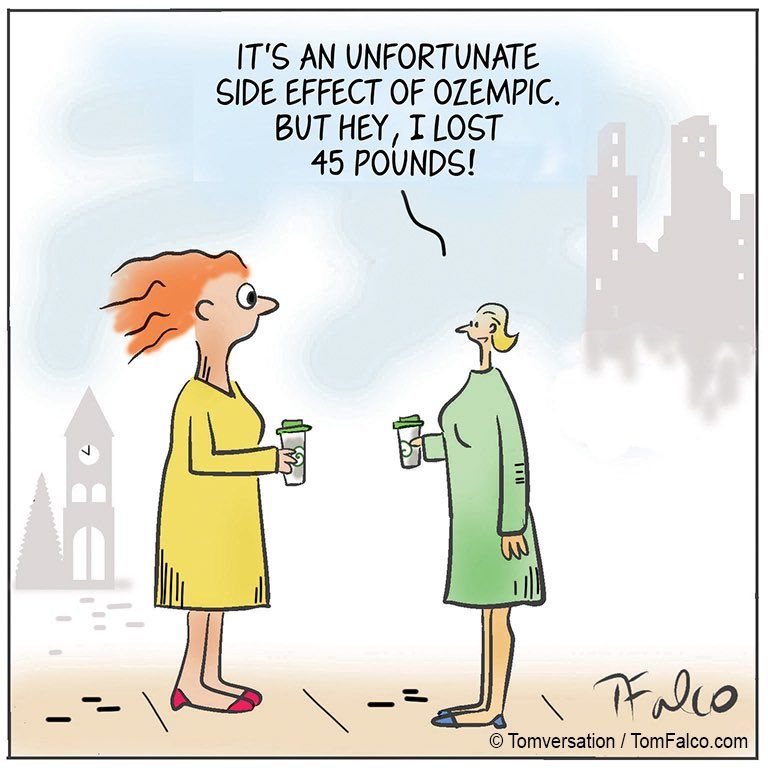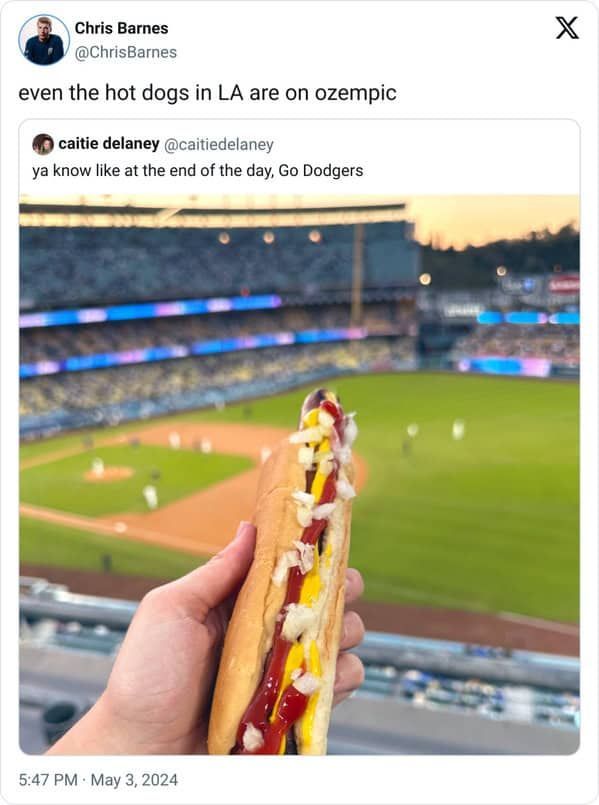Talking about weight
Sheep herder in Mongolia

The new weight loss drugs – Ozempic, Wegovy and Zepbound – are a subject I’ve been avoiding. Talking about weight loss is in the same realm as talking about weight - a topic best left undiscussed. I had an eating disorder as a young adult and it hugely compromised my happiness for many years. Having an eating disorder left me with an inbuilt aversion to conversations about weight, or what people should or shouldn’t eat in relation to weight. It also resulted in my hate relationship with bathroom scales (I’d like to smash every set of bathroom scales I see, except they are all other people’s possessions).
In rural Mongolia, people are rarely anything other than normal-size looking. I assume that’s because Mongolian herders are very active and have restricted diets because they are limited to the food they can grow. In a Western world the Mongolian diet might be looked at with concern – it’s very high in dairy fat and meat fat with vegetatables and fruit rarely making an appearance (the herder in the photo above carefully dropped the capsicum from his the cheese sandwich we gave him onto the ground). Mongolian longevity is right on the global average, at around 71 years, so their fatty diet may not be the best, though it isn’t the worst. However, their access to medical care is very limited which will compromise longevity.
Given their lack of bulk, Mongolian herders are not going to have the new class of weight loss drugs in their fridges. Especially because they don’t have fridges. However, plenty of people in the western world have fridges and do want weight loss drugs...
The new class of weight loss drugs was developed to help people with type 2 diabetes. The drugs were designed to stabilise insulin production in diabetics but trials showed weight loss to be a major side-effect; pharmaceutical companies had hit the jackpot. In 2017, Ozempic was the first of the drugs approved for treating obesity and Wegovy followed in 2021, then Zepbound in 2023.
How do the drugs work?
First, they slow the rate at which your stomach empties, which increases your sense of fullness. Second, they send messages to your brain telling it to secrete insulin, which breaks down glucose in your bloodstream. They do this by mimicking hormones. Ozempic and Wegovy mimic one hormone. Zepbound mimics two, so is more effective. Eli Lilly has a triple mimic in development because we know there are three hormones which regulate glucose (GIP, GLP-1 and glucagon).
How effective are the drugs?
Clinical trials suggest Wegovy and Ozempic can result in 15-16% weight loss after one year; Zepbound in up to 22.5% weight loss. Real world findings are more conservative - about 1/3 of patients achieve more than a 5% loss, the average being 2-8%. These findings are affected by people not taking the drugs once a week (the prescribed dosage) or stopping using them.
Do the drugs mean people don’t have to worry about what they eat?
The medical advice is that weight loss drugs need to be combined with increased activity and a good diet. People won’t have to worry so much about what they eat because they won’t want to eat has much. It's unlikely the proposed health benefits of weight loss are going to eventuate if people continue to eat poor diets. Diseases like Type 2 diabetes, are not just caused by being obese, they are also caused by the diet people eat, which results in both obesity and Type 2 diabetes.
Every drug has its downside, in the case of the weight loss drugs there are physical, financial and social downsides:
Physical Downsides
- The weight people lose on these drugs all returns if people stop using the drugs. The new weight loss drugs are for life. But that’s not unusual in medicine - people take blood pressure medication, or statins for heart protection, for life.
- The drugs have to be injected - oral dosages are not currently high enough to be effective. If you don’t like needles these drugs are not for you.
- The drugs have common side effects, mostly stomach-related - nausea, vomiting, diarrhea, stomach pain. In general, the more effective the drug, the more side effects.
- More concerning side effects include an increased risk of intestinal obstruction - when food doesn’t move through the digestive tract properly and surgery is required to correct it. Rapid weight loss also can come with loss of muscle mass.
- Of course, any physical downsides of the drugs have to be balanced off against the physiological upsides of reduced body mass.
Financial Downsides
- The drugs currently cost $500/month. That’s expensive for individuals if they can’t get a prescription and expensive for New Zealand if they are subsidised. However, they will get cheaper over time as more drugs enter the market and manufacturing scales up.
- The financial downside for our healthcare system, where the drugs are prescribed, needs to be balanced off against a reduction in healthcare costs for diseases related to obesity. However, the drugs are a new cost while the health benefits will take years to decades – there either needs to be more money in the healthcare budget or money will have to come out of some other part of the healthcare budget to fund weight loss drugs. And, as mentioned above, if people continue to eat poorly, they may not be all that healthier.
Social Downsides
- People on these weight loss drugs aren’t hungry any more. While that sounds like a good thing, food is an important part of our social glue. It’s not so much fun being with people eating if you aren’t interested in food.
- The drugs may make for even greater societal divides around weight, linked with income. If you are rich, you will be able to afford weight loss drugs. If you are poor, you can’t afford to think about them unless a doctor prescribes the drug for you. There’s evidence that people who are well within normal body size ranges are using these drugs to become even thinner - perceived relationships between thinness and wealth could become even more emphasised.
- And the big one…body image. I’ll step outside these bullet points to consider the impact of weight loss drugs on the long running pressure to be thin.
The biggest concern around weight loss drugs is the correlated resurgence in pressure to be thin. Our society managed to move the dial slightly on the pinnacle of thinness from when I was young:
- In the 1960s and 1970s, Twiggy was ‘the’ model.
- In the 1980s and 1990s, dieting and weight loss were the focus.
- The 2000s to 2010s saw the rise of ‘health' and ‘wellness’. Concepts of fat phobia and body acceptance gained traction, along with the wealth of other types of human diversity we are learning to accept and value rather than stigmatise.
- However, in the 2020s, we are headed back towards a focus about weight loss.
The fashion industry has definitively returned to loving thinness:
- New York Fashion Week had a 40-50 ‘curve’ models on the runway each season 2022-2024. In 2025, there were 23, out of 3640 ‘looks’ on the runway.
- London Fashion Week had between 45 and 85 curve models 2022-2024; in 2025, there were only 26 curve models out of 1600 runway ‘looks’.
- Milan dropped from around 14 to 10 curve models out of 2960 looks in 2025.
- Paris went from 30-40 curve models to 22 out of 4860 looks in 2025.
And what size is a ‘curve’ model? A size 12 and above…that’s a Medium size in New Zealand, sitting right in the middle of the typical range of sizes offered - from 6 to 18. A curve model is not large!
Of role models, the promotion of Ozempic by Serena Williams has been particularly disappointing. It’s up to Serena what she does with her own body – women have spent decades fighting for the right to make their own choices. However, what Serena advertises and promotes to others is a different matter. She's an amazing international tennis star who had real curves and muscles and won the second most women’s singles titles of all time and four Olympic gold medals for tennis. Many women saw her as a role model; they will still see her as a role model as the face of a weight loss drug.
My last question about weight loss drugs is whether the best way to solve people falling off cliffs is by parking ambulances at the bottom. Our obesogenic food environment is resulting in obese people; are drugs that make people thinner the best solution? Would changing the food environment be a better solution?
Of course I know the answer to my own question. Our society has little ability to control quality of food available. A sugar tax might shift the dial a little, but it won’t solve the plethora of highly processed products that purport to be food. Our only option appears to be more manufacturing (of drugs) - capitalism at its acme.
And in conclusion? For some people the new weight loss drugs will be a life saver. For others, the drugs will be an (expensive) adjunct to the life-destroying pursuit of unnecessary thinness that distorts body image and warps eating behaviours. For better or worse, weight loss drugs are a genie that has exited the bottle.









